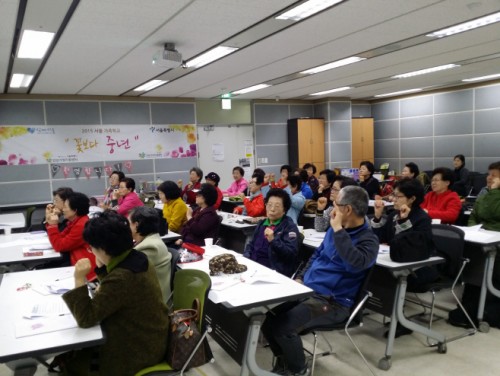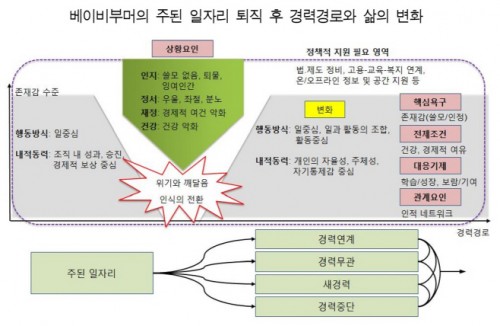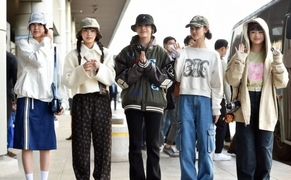 |
| A free family education program for baby boomers entitled, ‘Seniors Over Flowers,’ held by Seoul Metropolitan Government in 2015./ Source: Seoul Metropolitan Government |
AsiaToday reporter Joo Sung-sik
A 64-old man, ‘A,’ retired after working for 33 years in the culinary department at a hotel. He is now actively searching for what he could do while keeping up with his temporary jobs at small restaurants. “I came to think that I should live my life doing whatever I want when I’m able to do so. These days, I’m happy enjoying my hobbies, such as lego building,” he said.
The Korea Employment Information Service (KEIS) issued a report Monday on life satisfaction of South Korea’s baby boomers after retiring from their main jobs.
For the report, the KEIS selected 42 baby boomers who retired from their main jobs in consideration of various factors, such as gender, education background and career, and analyzed the results of in-depth interviews for 6 years from 2014 to 2019.
In Korea, the boomers are the post-Korean War generation born between 1955 and 1963. They have been the main pillar of the economy, experiencing social upheavals such as democratization movement in 1980s, the IMF bailout in 1997, and the global financial crisis. They account for 14.6 percent of the total population.
 |
| Source: The Korea Employment Information Service (KEIS) |
According to the report, those boomers who continue to be satisfied with their life after retirements have the following characteristics:
1) Recovering from psychological, emotional, relational and economic crises due to retirement,
2) Letting go and accepting changes
3) Setting and practicing personal life goals
4) Pursuing a life for own self while meeting economic needs
5) Feeling useful and recognized, and more.
‘A’ is one of the good examples of retirees who choose to live one’s own life by doing what he wants and making efforts after retirement. ‘B’ is a 62 year-old woman who had a difficult time after experiencing depression and retirement letdown for a while. But now she is more satisfied with her life, with a change in awareness. “I am the owner of my life, and I want to live my whole life with what I love,” she said.
There are also cases of those whose level of life satisfaction increased through a transitional attitude of ‘letting go’ and enjoying your own life without comparing it with that of another. C is a 62-year-old man who has been working as a head of an apartment management office for 6 years after his long career in the financial investment sector. “Although I earn less money that I used to, I stopped comparing myself to others and let go of my greed for money. As I try to do my best in the given reality, me and my son think of me positively,” he said.
“The change of work and life of baby boomers after retirement is a process of struggling to recover their collapsed presence,” said senior KEIS researcher Kim Eun-seok. “Those retirees who seek reward and meaning through activities are highly likely to have a productive and satisfying life.”
#baby boomers #retirement #Korea Employment Information Service
Copyright by Asiatoday
Most Read
-
1
-
2
-
3
-
4
-
5
-
6
-
7





















